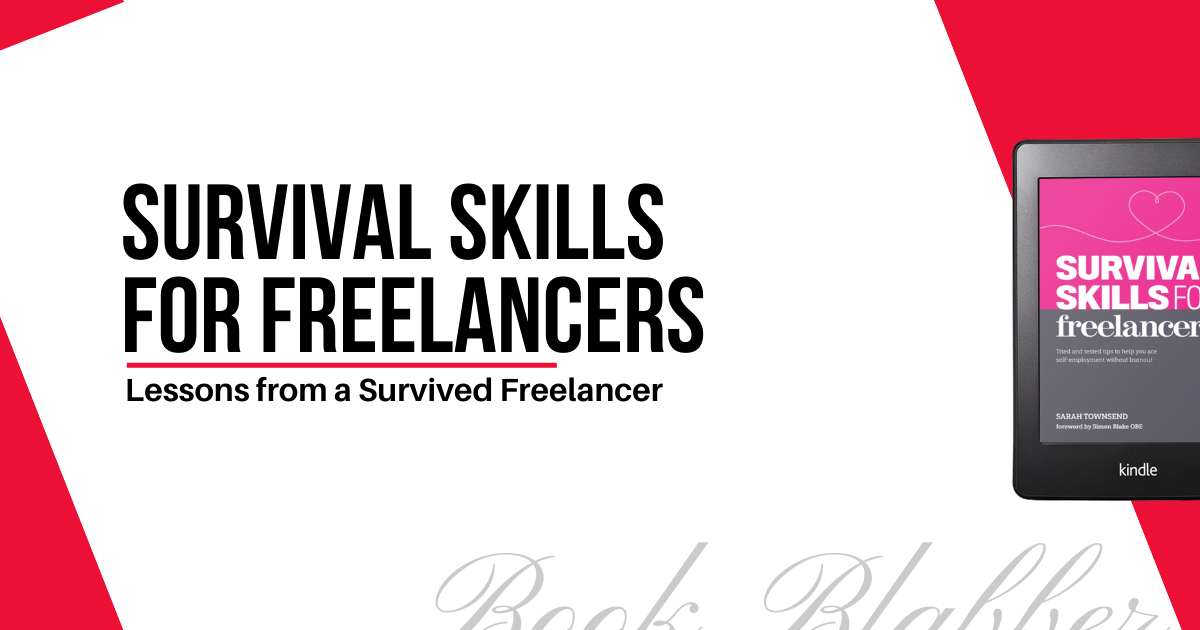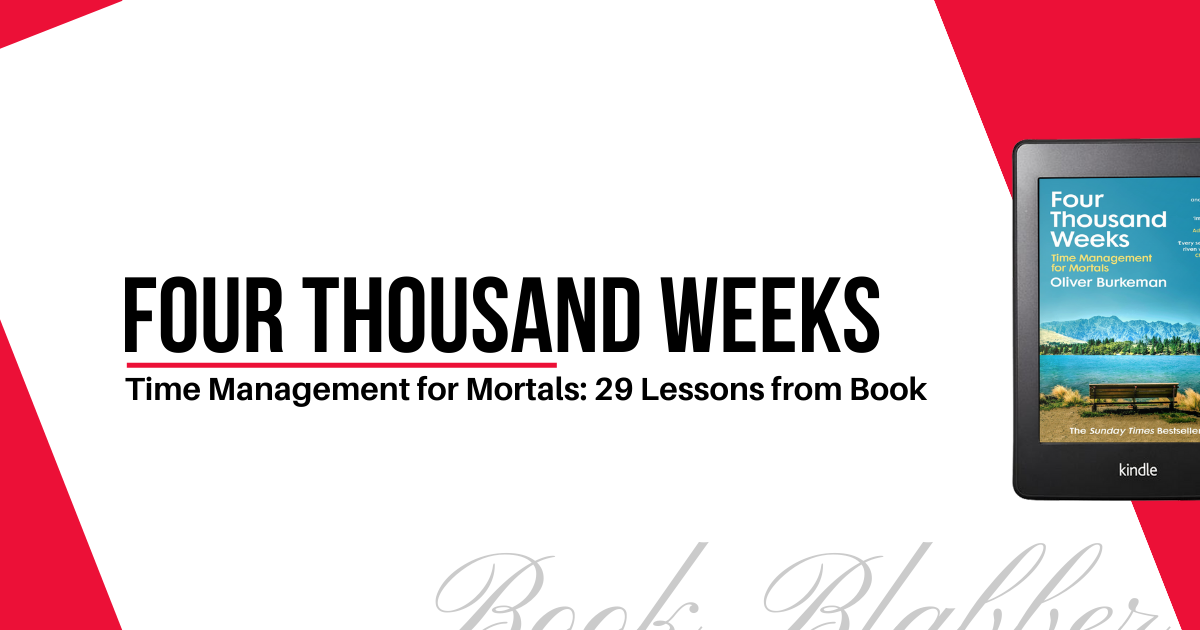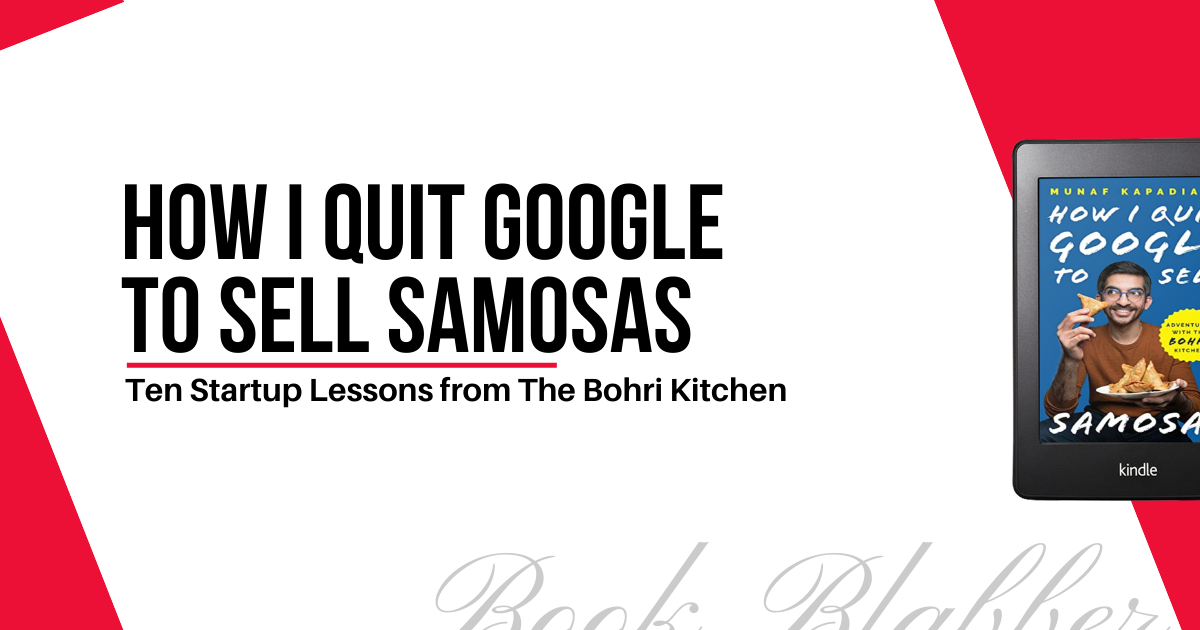Lessons from a Survived Freelancer

Last month I read Survival Skills for Freelancers, by Sarah Townsend.
It’s a 200-page book capturing her 20-year freelancing experience. It has her tips, stories from other freelancers, and some freelance myths. True to its name, the book is your survival kit as a freelancer, taking you through the so-called green grass of the freelance lifestyle.
Whether you're a new freelancer or an experienced one feeling lost, you'll find the book helpful. It’s one of the most basic reference books for freelancers and anyone who wants to make big as a freelancer. Probably, the most comprehensive freelancing books for newbies.
Check Survival Skills for Freelancers on Goodreads
Here are some facts, business mantras and wellbeing tips from the book. A few of the things I’ve tried myself, and they work.
Fast facts
1) Freelancing is often positioned as a fix-all for the problems of employment (and unemployment) – but the reality isn’t as clear-cut.
2) It’s a rare and fortunate freelancer who gets to pick and choose their clients and work from day one. The dream of complete control over your workload, salary and schedule is, more often than not, unrealistic.
This might help: Effective Small Business Marketing Strategies by Allan Dib
3) You need to live without financial rewards, such as a pension, sick pay, holiday pay, parental leave, bonuses, life assurance, paid overtime, and, above all, a regular income.
4) You’re more likely to be up at the crack of dawn after pulling an all-nighter to cope with a shedload of work – then crying into your soup because you missed out on yet another pitch and don’t know where your next paycheque is coming from.

A bit about skills
5) You need to be great at what you do, of course – but skills and talent alone are no guarantee of success.
6) Your clients don’t want to work with you because you’re the best in your field. They want to work with you because they like you, you’re reliable and easy to get along with, and you show a genuine interest in their business.
7) To succeed as a freelancer, you need to be… tenacious. outgoing. enthusiastic. driven. ambitious. sociable. determined. patient. extrovert. motivated. organised. curious. flexible. courageous. persistent. reliable. optimistic. disciplined. authentic. confident. thick-skinned. creative. resilient. responsible.
8) It’s possible to succeed in the freelance world with just a handful of these traits. If you don’t identify with any of them, it’s worth thinking whether going it alone is the right decision for you.
9) Solo workers need to be self-starters with a clear list of priorities and the motivation and drive to achieve those tasks on time.

Also read: Stand out with Bytes of Freelancing Gyaan
10) Having the ability to take criticism professionally, not personally, is a useful skill to cultivate.
11) Certain characteristics help smooth your path to freelance success, others can be an obstacle. For example, being terrible at time management, dreadfully disorganized, or a procrastinator at heart can make life difficult if you’re not prepared to work at them.
12) The more resilient you are, the better equipped you’ll be to deal with the relentless ups and downs of freelance life. It determines how well you adapt to challenging circumstances while maintaining stable mental wellbeing.

13) Most weaknesses can be reframed as strengths. Impatient people make things happen, and they can be great at encouraging other people to get things done.
Check out Close Deals on Your Terms - Tricks to Negotiation
14) Being aware of your weaknesses makes you better equipped to work on them. And while you may be completely comfortable with the qualities you lack, it’s often in your power to develop these areas if you know there’s room for improvement.
15) To boost your emotional resilience: Make lifestyle changes. Look after your physical health. Give yourself a break. Build your support network.
Business mantras
16) You need to get serious about your business. And adopt the right mindset as well. It means investing in your business: technology. tools and equipment. your brand. your online presence. professional website. The sooner you adopt the mindset, procedures, and approach of a business owner, the sooner you’ll succeed.
17) Clients and colleagues won’t take your business seriously until you do the same.

18) Have the courage to stand proud as a freelancer. Talking and writing in terms of I and Me – rather than We and Us – communicates confidence and self-belief.
19) Good business is about authenticity and openness – and that means being proud of who you are and what you do, rather than pretending to be something you’re not.
This might be interesting: 10 Ways to Share Your Creativity and Get Discovered
20) Instead of panicking each time someone tells you they can’t afford your prices, treat it as a sign that this particular client simply isn’t the right fit for your business. Also, it’s a universal truth that the clients who question costs (or refuse to pay) always – without exception – end up being the biggest pain in the butt.
21) Politely decline their offer, let them step aside, and get ready to welcome the next opportunity that comes your way. One that recognizes the value in you, and the services you provide.
22) If you can’t take a project, sometimes a concise and confident email is the simplest way to say no. “Thanks for thinking of me. I don’t have the capacity to take on this work right now, but I can recommend a trusted colleague who may be able to help.”

23) Another approach is to subcontract to another freelancer. This can work, but a word of warning. The client has contacted you because they know, like, and trust you. They’ve picked you because of your reputation, which you’ve worked hard to build. Your clients should know they can expect a consistently high standard of work – delivered by you.
24) It’s best to pick a couple of platforms and do them really, really well, instead of trying to maintain an active presence across the full social media spectrum.
Read this: 12 (plus 1) Lessons Learnt from Purple Cow
25) To a certain degree, difficult clients and punishing projects are an important part of your freelance growth.
Tips about wellbeing
26) To start working from home: Introduce routine. Keep moving. Claim your space. Avoid distractions. Stay focused. Manage your time.
27) Starting your day with a short walk outdoors is a simple way of building both daylight and exercise into your routine.
Check this one: Hack Your Morning and Win the Day
28) Be with people who inspire and support you, who lift your energy with their positivity and ideas, and who make you laugh – not the energy vampires who flatten you with their gripes about how hard it is to be your own boss.

29) It’s hard to switch off, particularly when there’s no office to leave behind. And the flexibility of self-employment can be a mixed blessing if it means you never stop thinking about work.
30) Ask for help when you feel the need. It doesn’t just make good business sense: it’s vital for your wellbeing and the enjoyment you get from self-employment. After all, if you’re not taking care of yourself and your own needs, how can you expect to fulfill the needs of the people around you.
31) Try opening up to a trusted friend or colleague. You may be surprised to find they feel the same. Talking about your feelings can help to normalize them.
32) If you’re in the habit of berating yourself when you make a mistake, and you’re unforgiving when something doesn’t go to plan, make a choice to be kind to you.

33) Almost everything will work again if you unplug it for a few minutes, including you. Simply taking a short break and indulging in a little self-care can do wonders for your emotional resilience,
34) Choose the wellbeing methods that work for you and build them into your working life. Meditate. Exercise. Listen to music. Find your flow. Get out in nature. Sleep well.
35) Simple guided meditation techniques could work for you, or you may prefer to sit at the top of a hill, watch the clouds, and enjoy the peace, quiet, and fresh air – or to watch the waves crash on a pebbly beach. Even short bursts of exercise release endorphins – powerful, feel-good chemicals that help to ease stress, anxiety, and depression. Easy-to-use smartphone apps such as Headspace, Calm, and Stop, Breathe & Think can be a good introduction to basic meditation techniques.
36) Create a playlist of uplifting music that’ll elevate your mood if you’re feeling low, or calming musical wallpaper that keeps you focused in the face of challenging
37) Take a break to do a crossword or sudoku, mow the lawn, bake a cake, or wash the car. These tasks, and many like them, can help you to achieve flow: a mental state in which you’re so absorbed and focused on an activity that nothing else seems to matter.
38) Sleep is as important to our health as eating, drinking, and breathing. It gives our bodies time to repair. Work with your natural pattern, not against it.

Towards growth
39) Challenging projects bring opportunities to develop your skills and grow as a person. Sometimes the self-esteem boost and mindset shift that comes from just damn well doing it are all the reward you need.
Also check this one: Learn Personal Finance with Stories and Examples
40) Remember that being nervous and being excited feel just the same. Tell your brain you’re excited to be doing something new – something brave and bold – and you’re more likely to enjoy it, and to do well.
41) A few simple strategies can help you keep self-doubt and imposter syndrome in check: Accept mistakes. Stop comparing yourself. Keep talking. Reward yourself for taking risks. Celebrate your successes. List the things you’re good at
42) I hope that in this year to come, you make mistakes. Because if you are making mistakes, then you are making new things, trying new things, learning, living, pushing yourself and changing the world. You’re doing things you’ve never done before, and more importantly, you’re doing something.
43) Comparison can lead to disappointment, dissatisfaction and doubt – so stop doing it! As long as you’re happy with how far you’ve come and what you’ve achieved, it doesn’t matter what anyone else is up to.
44) Stop chalking your wins up to chance and coincidence. Instead, recognise every little success for the achievement it is. Reflecting on your achievements is an important part of the learning process.

45) Give yourself credit for how much you’ve accomplished, how far you’ve come, and how much you’ve learned along the way – especially the lessons you learned the hard way. Things may not have gone the way you expected, but you took a risk and grew as a result. That’s worth celebrating.
That was all from the book on freelancing.
Join Book Blabbers WhatsApp group to bond over books, memes and quotes.
Subscribe to Book Blabber's Bulletin to get book summaries, reading tips and occasional hugs in your inbox.





Comments